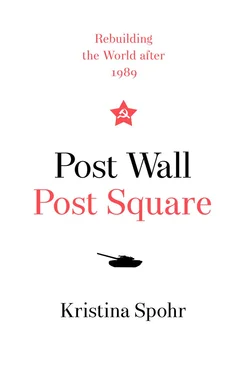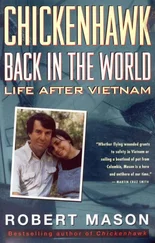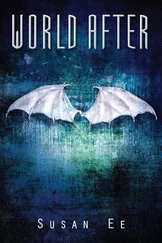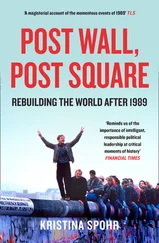As with all of Gorbachev’s words, the rhetoric was impressive, even compelling. There was no mistaking the Soviet leader’s keenness to join the G7. But Bush was wary about the Soviets. Their reforms had not yet advanced far enough to warrant full membership in the top club of free-market economies. [99]And he could see that Soviet involvement would mostly be of benefit to Moscow. Yet Gorbachev’s letter, widely quoted in the international press, was impossible to ignore. The absence of the Soviet leader was felt throughout the summit, just as it had been during Bush’s visits to Warsaw and Budapest. Tiananmen was another ghost at the feast – an ugly reminder of what could happen if democratic reform went wrong.
After the summit ended on Sunday morning, 16 July, Bush chatted with Baker and Scowcroft on the steps of the Paris embassy overlooking the garden; they discussed their impressions and experiences of the past few days. Suddenly the president announced that the time had come for him to meet at long last with Gorbachev – speaking, as Scowcroft later recalled, ‘in that way he has when his mind is made up. Neither Baker nor I remonstrated with him. Baker had never been as negative as I about an early Gorbachev meeting, and I no longer felt so strongly about it.’ [100]
It looked like a spontaneous impulse, but in fact Bush had been mulling over this for several weeks. Particular impetus came from the West Germans. On 6 June, in the Oval Office, FRG president Richard von Weizsäcker had warned Bush about the implications of the recent turbulence in Poland and Hungary. ‘It would be useful if the US had quiet talks with Moscow about the future of Eastern Europe,’ he said. The West European allies would do the same based, as he put it, ‘on the values of the Atlantic Alliance’ and the FRG would act within this framework to avoid any impression of an independent Ostpolitik. [fn1]Weizsäcker returned to the same point later in the conversation, warning Bush more bluntly that ‘in their foreign relations, the Soviets are approaching a time that is totally unknown to them, and they are legitimately worried’. He added firmly: ‘The West needs to talk to Moscow to alleviate these fears.’ The US president did not respond directly but segued to China, observing that he ‘had the feeling that the Soviets are saying “there but for the grace of God go I”. They may be worrying that reform could affect them in the same way.’ [101]
The impressions gleaned from this conversation were reinforced on 15 June when Chancellor Kohl – immediately after his talks with Gorbachev in Bonn – called Bush on the phone to convey his impressions. The Soviet leader, he said, had been in ‘good shape’ and relatively ‘optimistic’, showing himself keen to support Polish and Hungarian reform efforts. But Kohl kept coming back to one issue: Gorbachev was ‘seeking ways of establishing personal contact with the president’. Laying it on thick, the chancellor claimed that he and Gorbachev had ‘talked for quite some time about the president’. It was clear, said Kohl, that Gorbachev had a ‘general suspicion towards the United States’ but also that he had ‘greater hope for establishing good contact with Bush than he had with President Reagan.’ At an intellectual level, Kohl insisted, Gorbachev saw ‘eye to eye with the president’ and wanted to ‘deepen contacts with the US and Bush personally.’ Kohl urged sending direct and personal messages to Gorbachev from time to time. This, he declared, would ‘signal the president’s confidence, which is a key word for Gorbachev, who places a high premium on “personal chemistry”’. Bush probably took it all with a pinch of salt – at the end, to quote the official US record, he merely ‘thanked the chancellor for his debrief and said he had listened very carefully’ – but the main point clearly registered. [102]
At the weekend Bush had a chance to reflect on the week’s events. On 18 June, three days after talking with Kohl, he wrote in his diary: ‘I’m thinking in the back of my mind what we should do about meeting with Gorbachev. I want to do it; but I don’t want to get bogged down on arms control.’ Bush hoped that ‘some cataclysmic world event’ might occur to give him and Gorbachev the chance to ‘do something that shows cooperation’ and in the process ‘talk quietly’ without raising expectations of some dramatic breakthrough on arms control. In short, the president wanted a chat not a summit. [103]
Bush’s visits to Poland and Hungary sharpened his awareness that reform might easily get out of hand and turn violent. He could not forget those images of Tiananmen Square, nor could he ignore Eastern Europe’s ‘traumatic uprisings’ of the past. If Eastern Europe was now in transition, this had to be managed by the superpowers: ‘to put off a meeting with Gorbachev was becoming dangerous’. [104]And Mitterrand had rammed this very point home on 13 July, the eve of the G7, dismissing Bush’s concerns about finding a pretext without raising expectations. The French president said the two of them could ‘simply meet as presidents who had not yet met – to exchange views’. [105]
The pressure from his European allies had become intense but Bush was both stubborn and circumspect: he had to make up his own mind in his own time. By mid-July 1989 he had finally done so. Seven months after his inauguration – having grown into the role of president and with his initial China opening now stalled – his focus was firmly on Europe and he had consolidated his own leadership position at the NATO summit in May and the recent G7. Bush had come a long way from that halting bit-part role on Governors Island in the wake of Gorbachev’s barnstorming performance in Manhattan. He now felt psychologically prepared to tangle with the Kremlin seducer.
This slow and deliberate approach to decision-making was characteristic of the Bush style, so different from that of Reagan, who had been nicknamed ‘the Great Communicator’ and ‘the Cowboy President’. There was no flamboyance or fireworks. Bush’s approach was more measured and pragmatic, based on long experience of government. Some commentators mistook Bush’s understated manner and preference for consultation as signs of weakness – an intimation, even, that America’s power was on the wane. But Bush understood cooperation, collegiality and persuasion to be the hallmarks of leadership and these required personal contact and the building of trust. By the time the G7 was over, Bush knew that these techniques had worked with his Western partners and he felt ready and able to try them out on his superpower counterpart, quietly confident that he could handle Gorbachev’s unsettling mixture of sweet talk and ‘one-upmanship’. Gorbachev had told Reagan that it took two to tango. Bush was now willing to join the dance. [106]
On Air Force One, flying home from Europe, the president drafted a personal letter to Gorbachev to explain how, as he put it, ‘my thinking is changing’. Previously, he explained, he had felt that a meeting between them would have to produce major agreements, especially on arms control – not least because of the hopes of the ‘watching world’. But now, after seeing the Soviet bloc first-hand, holding ‘fascinating conversations’ with other world leaders in Paris, and learning about Gorbachev’s recent visits to France and West Germany, he felt it was vital for the two of them to develop a personal relationship, so as to ‘reduce the chances that there could be misunderstandings between us’.
The president thus proposed an informal, no-agenda encounter, ‘without thousands of assistants hovering over our shoulders, without the ever-present briefing papers and certainly without the press yelling at us every 5 minutes about “who’s winning”’ and whether or not the meeting was a success or failure. In fact, Bush added firmly ‘it would be best to avoid the word “summit”’ altogether. He hoped they could meet very soon but he did not want to put Gorbachev under any undue pressure.
Читать дальше












